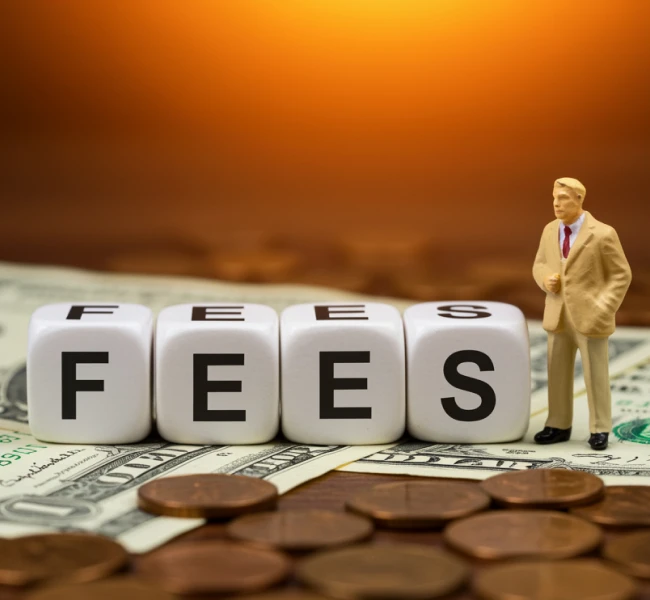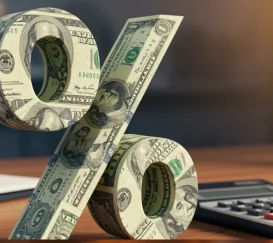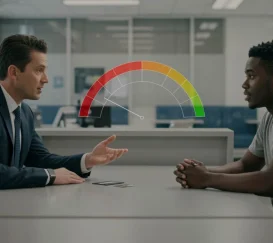Overdraft fees are extra costs your bank charges when your account dips below $0. These fees can add up fast and affect your finances dramatically. The good news is, you can get this money back in some cases.
Many banks allow customers to request refunds for overdraft fees, especially if unique circumstances lead to them. Knowing your rights and how to ask can significantly minimize your losses. Let’s find out what you need to do to get your overdraft fees refunded.
- The overdraft fees are penalties charged by banks when you spend more money than you have in your bank account balance.
- The average overdraft fee as of 2023 was $26.6. The cost can range anywhere from $10 to $39, depending on the bank.
- You can waive overdraft fees if you discuss the details with your representative and prove unfair charges.
- To avoid overdraft fees in the future, you can link an additional account to your primary one.
What is an Overdraft Fee?
An overdraft fee is a penalty for spending more money than you have in your account. It happens when you buy something but don’t have enough funds to cover the item’s cost. The bank deposits the missing sum as a loan and charges you a fee for it.
If you don’t always keep track of your account balances or spend money thoughtlessly, overdraft fees can add up fast, leaving you in debt you were not prepared for. Unpaid fees, in turn, can result in collection practices and account closure. Luckily, there are some ways to address them quickly.
What is Overdraft Protection?
Overdraft protection is a service that helps you avoid overdraft fees. There are some options for this matter. The main one is connecting your other savings or checking account to the current one. This way, your bank will just take some funds from it to fill in the gap if you occasionally spend more money than was in your balance. However, it is only possible if you have enough funds in your extra account.
Another option is to link your account to a credit card or line of credit. Some financial institutions also offer protection where they cover you if you overspend but then bill you for it later. The monthly interest is usually lower than potential overdraft fees, but it depends on your bank.
However, the overdraft protection may have significant downsides. For example, you might be charged a fee for each money transfer or face lost profit if you use the funds from your savings account. You are advised to consult your lender and be entirely informed about the consequences.
Can You Get Overdraft Fees Back?
Some banks might make an overdraft fee refund if you call customer service and explain your situation, especially if you don’t overdraw too often and are in good standing. A few banks also offer strategies on how you can get overdraft fees waived or how to reduce it.
Wells Fargo has something called Overdraft Rewind. They’ll waive the overdraft fee if you deposit enough money by 9 AM the following day to cover the amount you overdrawn. It works automatically if you have direct deposit set up.
Bank of America has Balance Connect, where you can link up to 5 other accounts to transfer money from to avoid overdraft fees. It could be another checking account, savings account, credit card, line of credit, etc.
Huntington Bank also has its protection tool. If you overdraw $50 or less, it’s covered by their $50 Safety Zone, which means no overdraft fee will be charged. Plus, there is no overdraft fee if you deposit the amount overdrawn within 24 hours.
Who Is Most Likely Not to Get Refunds?
Banks usually refuse to waive overdraft fees when a customer overdrew a lot. They consider it an account mismanagement if you need more to cover purchases. You are also most likely to be denied a fee refund if you are intentionally spending more money than you have just because you need it. Banks don’t consider it a valid reason for waiver.
How to Get Overdraft Fees Refunded Quickly?
Overdraft fees can be refunded if you know how the system works. Here are several tips and tricks for doing it quickly.
Contact your bank representative
Talking to the bank can be challenging but worth a shot. The worst they can do is say no. Explain to your bank manager what happened—maybe you had a surprise bill or a check that bounced. If you’re honest about what happened and politely ask, they’ll probably work with you on this overdraft fee.
Use correct discussion strategies
You must have a plan when talking to banks about getting your money back. First, get all your statements, transaction details, and any information about the bank fees. Read the terms attentively to learn more about how the banks charge overdraft fees. Know your account terms backward and forwards. Then, explain why the overdraft fee isn’t correct. If the bank messed up somehow, spell it out. Let them see getting your cash back is the only fair thing to do. Getting angry or flustered won’t help, but being prepared will. Just lay the facts straight and don’t give up.
Try alternatives if your bank refuses
Sometimes banks can be stubborn. If talking to the manager yields no result, it’s time to take your business elsewhere. Switching banks can be a headache, but you have nothing to lose if your current bank keeps treating you with bad service and high fees. Shop around a little and find one with better terms.
When choosing a new bank, read their conditions carefully and make sure there are enough ATMs and branches in your area. Although it is time-consuming, a few hours of work could save you from years of frustration.
How to Avoid Overdraft Fees in the Future?
Here are some tips on how to get rid of overdraft fees down the road so you can handle bills without stress.
Monitor your checking account balance
When you keep track of your account balances, you know how much money you have and can plan your purchases accurately. Doing that also lets you quickly notice strange activities, such as surprise charges or mistakes, so you can deal with them as soon as they appear.
Whether it’s an automatic payment you forget to disable, a fraud, or just miscalculated your budget, watching your balance closely means you can handle it quickly. Many banks have strategies, such as text or email alerts they can send to give you a heads-up when your bank account gets low.
Maintain a buffer in your bank account
Having extra cash in your checking account can come in handy when surprise expenses pop up or your paycheck is less than usual in one month. While keeping a buffer isn’t always possible, it’s a good idea to set aside money for emergencies. Even a couple hundred dollars can help you avoid extra charges if you occasionally spend more than you planned.
Choose overdraft protection options
Banks offer overdraft protection to help people avoid overdraft fees. This tool allows you to link your checking account to another one. If your balance is tapped out when you buy something, the remaining sum will be moved from the linked account. You can also choose another form of protection where a bank covers these expenses for a nominal monthly fee.
Rely on banks with no overdraft fees
More and more banks are completely eliminating overdraft fees as they see how much they hurt their customers. More than that, new laws, such as the Junk Fee Prevention Act, are trying to stop banks from applying these costs. Finding a financial institution with no charges for overdrawing is the best way to avoid them.
Bottom Line – Can You Get Overdraft Fees Waived
Banks charge overdraft fees when you spend more money than you actually have in your account. Some banks may charge up to $40, making even an occasional overspending very expensive. However, you can sometimes get those fees back if you are in good standing and ask nicely. Additionally, the fees may be waived if they were charged for a fraudulent transaction. You can also set up overdraft protection that links your accounts or gives you a little credit cushion to avoid the fees. Then, simply keep an eye on your balance to know for sure how much money you have and notice any suspicious activity if it occurs.
References
- Junk Fee Prevention Act – https://www.congress.gov/bill/118th-congress/senate-bill/916#:~:text=This%20bill%20establishes%20requirements%20related,an%20accompany%20adult%20during%20flights.
- How many savings accounts you must have https://www.usnews.com/banking/articles/how-many-savings-accounts-should-you-have
- Overdraft and account fees – https://www.fdic.gov/resources/consumers/consumer-news/2021-12.html



